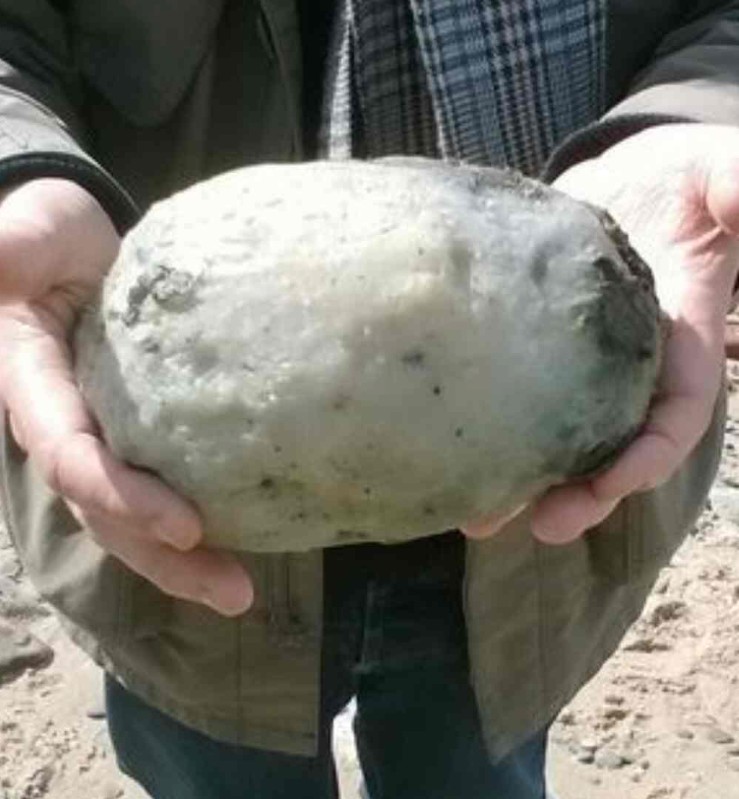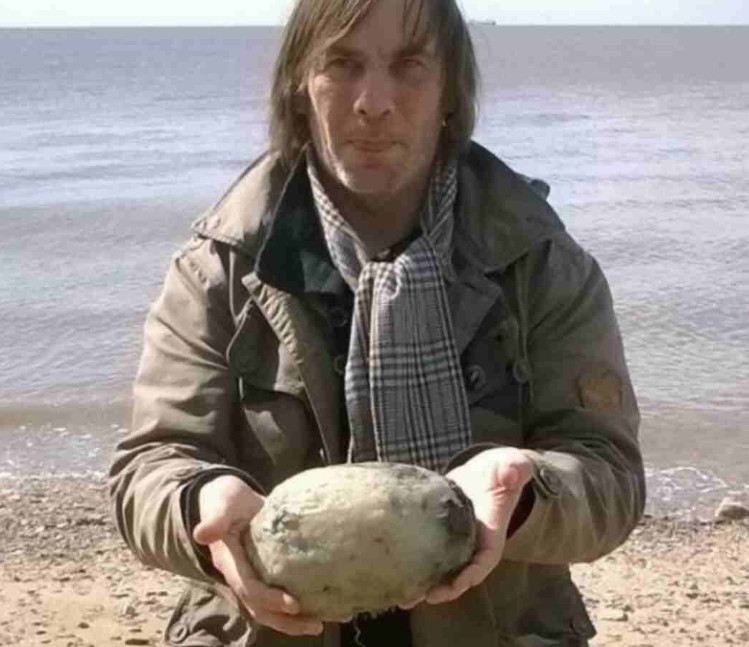As Gary and Angela Williams strolled along Middleton Sands beach near Morecambe Bay, they caught a whiff of something unpleasant—rotting fish.
Curious about the odor, they traced it to a peculiar “rock” that resembled a piece of ambergris, often referred to as “whale vomit,” which is prized in the perfume industry.
After learning about this valuable material from a newspaper, the couple wrapped the sizable lump in a scarf and took it home.
Gary, 48, later placed the lump on his fishing scales and found it weighed 1.57kg, which is just over half the size of a lump discovered several years ago near Morecambe.
The earlier piece of “whale vomit” had an astonishing value of £120,000 back in 2013.
Gary and Angela, a 49-year-old nurse, are currently in talks with potential buyers about the lump that was recently found. The stone is slightly smaller than a rugby ball.
Ambergris, formed from the hardened intestinal sludge of a sperm whale, is often referred to as “floating gold” due to its rarity and high value to perfume manufacturers.
It takes years for this substance to develop, and it is thought to protect the whale from the hard, sharp foods it eats.
Before it washes ashore, it can drift in the ocean for many years.

After being exposed to the sun and salty water for an extended period, it turns into a smooth, grey mass of compact rock.
Engineer Gary described the find he and his wife made as “a bit of a shock.”
He mentioned it was found along a part of the beach that not many people used to walk on.
“Although it has a really unpleasant odor. It has a very unique scent that resembles a mix of farm manure and squid.
“Its texture is akin to that of a very hard rubber ball. It feels waxy, similar to a candle.
“Wax tends to stick to your fingers when you touch it.”
He went on to say: “If it turns out to be valuable, it could significantly help us buy a static caravan. That would be a dream come true.”
Whenever Gary and Angela take walks, they often look for intriguing items along the beach.
The 1.57 kg piece of ambergris was found on Sunday, and they have kept it safe while consulting with two experts—one based in France and the other in New Zealand.
Experts estimated that the 2.7 kg piece that washed up in Morecambe in 2013 could be worth as much as £120,000.












